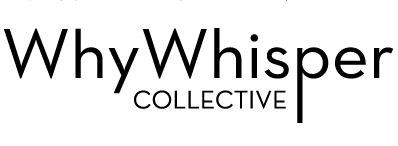by Kate Vandeveld
At WhyWhisper, we believe wholeheartedly in only working with clients when we’re passionate about their work AND we know we can help them reach their goals. In fact, we built our business model in such a way that we are able to customize our teams based on each client’s particular needs, objectives, and industry.
That said, we would never suggest that working with an outside firm is always the best answer. We know there are certain circumstances under which working with an outside firm is more beneficial than others (and we’re not afraid to say that out loud). Next time you’re contemplating hiring vs. leveraging external resources, keep these things top of mind:
- The exact responsibilities and/or role that you are looking to fill and the expertise required
- Your available budget
- The estimated hours required per week in order to meet this need
Once you have those answers, you’ll be in a good place to determine whether it makes sense to build your capacity internally, or engage an outside firm for support. Here’s how we see it:
You should probably hire in-house if...
You need consistent, long-term support.
As you’re deciding between building your in-house team and seeking outside support, take a look at your list of needs, and the estimated time commitment. If it seems like you’ll need someone regularly throughout the day, and there’s no immediate end in sight for the work that you need them to do, it probably makes sense to hire someone in-house. While consultants will do their best to make themselves available, when needed, they tend to be a better solution for a specific deliverable or set period of time.
You’re working with a highly technical or niche product.
Generally, consultants are highly adept at quickly entrenching themselves in a particular field or industry, becoming experts on products and brands very quickly. That said, if your company develops a product that requires extensive and complex technical knowledge, it will likely take more time and resources than it’s worth to bring an outside firm up to speed. If this is the case, consider hiring a full-time employee who will be able to use that knowledge and training beyond the scope of a specific project.
You have the time and budget to hire someone in-house.
If your company is in a steady state of growth, has a stable budget, and needs 40 hours/week of support, it makes good sense to make a full-time hire. Plus, as a fully invested member of the team, you have flexibility in regards to responsibilities without having to reassess budgets.
On the other hand, you can benefit from working with an outside firm if…
You need a fresh perspective.
If you’re having difficulty achieving intended results – whether sales, reach, engagement, or something else entirely – it may be time for a strategy overhaul. In these circumstances, we often hear that it can be hard for the day-to-day team to find the time or objective perspective necessary for taking a step back, identifying the problem, and re-thinking the strategy, As you might imagine, an outside firm (especially one with experience in your sector) might be just what you need. They’ll be able to look at your current practices objectively, and offer a new take on how you can effectively reach your goals. After all, developing a solid strategy is crucial to the success of your marketing efforts.
You need additional staff for a short time period.
On a normal day, you ‘re confident you have the ideal team for successfully operating your business. That is, until you decide it’s time to launch a new product or campaign, or your busy season arrives. In these situations, it probably doesn’t financially make sense to hire a new full-time employee. Instead, consider working with an outside firm to give you short-term support.
For example, if you’re looking to launch a crowdfunding campaign, you really wouldn’t want to bring on a full-time marketing or development person. What you need is a small team of individuals who have extensive crowdfunding experience. They can help you develop a solid strategy and show you how to implement. Beyond that, you can determine whether it’s beneficial to keep them on for execution, or if that’s something that you are able to handle with your existing in-house staff.
You need a particular skillset but don't have the budget or headcount to hire.
Sometimes, as much as you’d like to hire a full team of permanent employees to meet every possible need, it’s just not financially possible. For this reason, it often works well to hire a full-time team to handle daily operations, but outsource for particular needs if and when they arise.
For example, if you don’t have an in-house design team, but do have interim design needs, this is the perfect opportunity to bring on a freelancer or contractor, as needed. Or perhaps you’re interested in developing a social impact strategy to incorporate into your company’s operations, but you don’t have the necessary expertise or aren’t ready for full program build-out. A consultant can be a useful resource in helping you build out your plans.
You are scaling quickly and need immediate support.
Hiring the right full-time employee takes time and careful consideration… and with salary, benefits, training time, and team morale, onboarding the wrong person can be incredibly costly. If you’re facing an urgent talent need, but know better than to rush through the process, consider retaining an experienced consultant short-term. Consultants are generally prepared to ramp up quickly, and can even be beneficial if helping you identify your hiring needs.
What are your thoughts on working with outside agencies versus building internal capacity? We want to talk about it! You can…
- Share in the comments below
- Send us an email
- Connect with us on Facebook, Twitter, or LinkedIn



